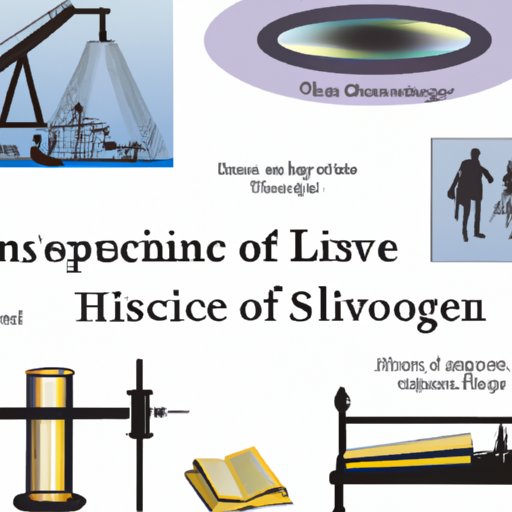Introduction
Physical science is a branch of science that studies the natural world. It encompasses a wide range of topics and disciplines, including astronomy, chemistry, physics, and Earth sciences. Physical science seeks to understand the physical properties and changes of matter, energy, and their interactions. By studying the physical laws that govern the universe, physical scientists are able to develop new technologies and make predictions about the future.

History and Development of Physical Science
The history of physical science dates back thousands of years. Ancient civilizations such as the Greeks, Babylonians, and Egyptians were among the first to study the physical properties of the world around them. In the 17th century, Isaac Newton developed his laws of motion and gravitation, which laid the groundwork for modern physics. Other major breakthroughs occurred in the 18th and 19th centuries, such as the discovery of electricity, the invention of the steam engine, and the development of atomic theory. All of these advances helped to shape the field of physical science as we know it today.
In the 20th century, physical science experienced a period of rapid growth and expansion. Advances in quantum mechanics, nuclear physics, and relativity theory revolutionized the field, while new technologies such as computers and satellites opened up new opportunities for exploration. Today, physical science continues to evolve and expand as new discoveries are made and new technologies are developed.
Application of Physical Science in Everyday Life
Physical science is used in many aspects of everyday life. For example, the laws of thermodynamics are used to design efficient heating and cooling systems, while the principles of electromagnetism are used in the development of electrical appliances. The principles of optics are used to create lenses for cameras and telescopes, while the principles of fluid mechanics are used to design airplanes and ships. Physical science has also enabled the development of modern communication technologies, such as cell phones and the internet.
Physical science has had a profound impact on modern technology. From the development of medical imaging technology to the use of lasers in optical communication, physical science has helped to revolutionize the way we live, work, and play. As more advances are made in the field, the possibilities for technological innovation are endless.

Current Research and Advancements in Physical Science
Physical scientists are constantly pushing the boundaries of knowledge by conducting research and making advances in the field. Recent advances include the development of quantum computing, the discovery of exoplanets, and the creation of new materials with unique properties. These advancements have opened up new possibilities for exploration and innovation and have the potential to revolutionize the way we live and interact with the world.
Physical science research is also making an impact on society. For example, advances in climate science are helping to inform policy decisions related to environmental protection and sustainability. Similarly, advances in medicine are helping to improve healthcare and extend human life expectancy. As physical science continues to advance, it will continue to have a profound impact on our lives.

Influential Scientists and Their Contributions to Physical Science
Throughout history, there have been many influential scientists who have made significant contributions to the field of physical science. Albert Einstein, for example, developed the theory of relativity, while Marie Curie discovered the elements radium and polonium. Stephen Hawking was a renowned physicist who made groundbreaking discoveries in the field of cosmology. These scientists and many others have played a crucial role in advancing the field of physical science.
Today, there are countless scientists working to push the boundaries of knowledge and make new discoveries. From researching dark matter to exploring the mysteries of quantum mechanics, these scientists are leading the way in physical science research and paving the way for a better understanding of the universe.
Conclusion
Physical science is a vast and ever-evolving field of study. From its ancient roots to its modern applications, physical science has continued to shape the way we view and interact with the world. From understanding the laws of nature to making advances in modern technologies, physical science has had a profound impact on society. Influential scientists have played a key role in the advancement of the field, and their contributions will continue to be felt for generations to come.
(Note: Is this article not meeting your expectations? Do you have knowledge or insights to share? Unlock new opportunities and expand your reach by joining our authors team. Click Registration to join us and share your expertise with our readers.)
